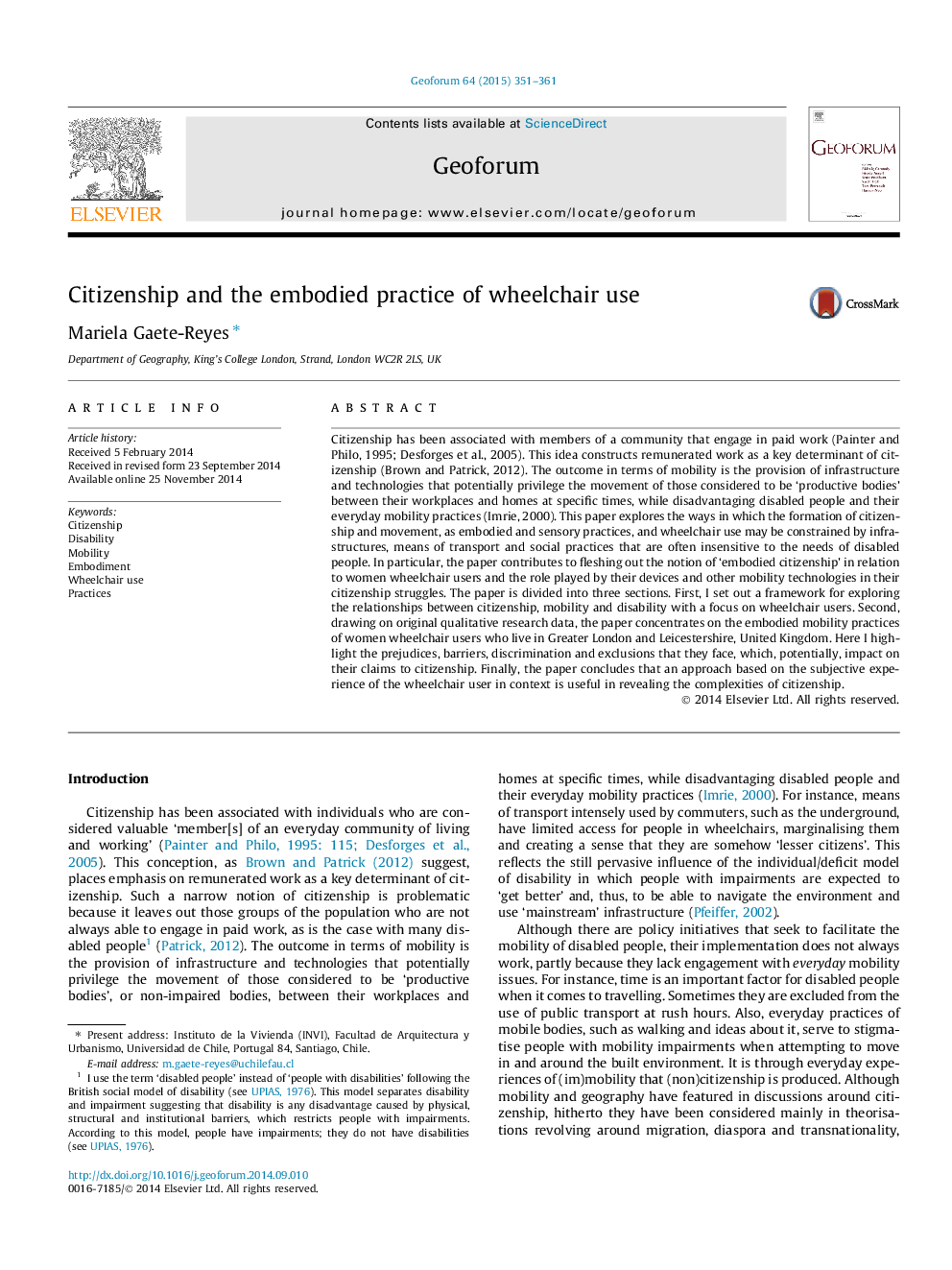| Article ID | Journal | Published Year | Pages | File Type |
|---|---|---|---|---|
| 5073698 | Geoforum | 2015 | 11 Pages |
â¢Citizenship unfolds through conflicts in the everyday mobility of disabled women.â¢Mobility technologies influence the citizenship struggles of women wheelchair users.â¢(Non)citizenship is constructed through sensory and emotional mobility experiences.â¢Mobility policy includes disabled people as citizens but they are excluded in practice.â¢Disabled people can exercise their mobility rights only at certain times of the day.
Citizenship has been associated with members of a community that engage in paid work (Painter and Philo, 1995; Desforges et al., 2005). This idea constructs remunerated work as a key determinant of citizenship (Brown and Patrick, 2012). The outcome in terms of mobility is the provision of infrastructure and technologies that potentially privilege the movement of those considered to be 'productive bodies' between their workplaces and homes at specific times, while disadvantaging disabled people and their everyday mobility practices (Imrie, 2000). This paper explores the ways in which the formation of citizenship and movement, as embodied and sensory practices, and wheelchair use may be constrained by infrastructures, means of transport and social practices that are often insensitive to the needs of disabled people. In particular, the paper contributes to fleshing out the notion of 'embodied citizenship' in relation to women wheelchair users and the role played by their devices and other mobility technologies in their citizenship struggles. The paper is divided into three sections. First, I set out a framework for exploring the relationships between citizenship, mobility and disability with a focus on wheelchair users. Second, drawing on original qualitative research data, the paper concentrates on the embodied mobility practices of women wheelchair users who live in Greater London and Leicestershire, United Kingdom. Here I highlight the prejudices, barriers, discrimination and exclusions that they face, which, potentially, impact on their claims to citizenship. Finally, the paper concludes that an approach based on the subjective experience of the wheelchair user in context is useful in revealing the complexities of citizenship.
